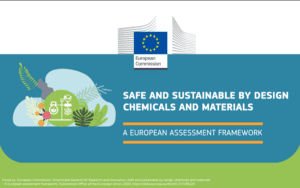The fact
Before the global financial crisis of 2008, it was a common perception that scientists are knowledgeable individuals who could be requested to provide a reliable opinion on the subject matter and emergency handling for a task. After the 2008 financial crisis in the banking and real estate sectors, this situation changed, so confidence in economy gurus dropped to a minimum. However, trust in STEM (Science, Technology, Engineering, and Mathematics) and Biomedicine scientists gained confidence, due to the steady advances in technology, with emerging trends in AI tools, and health care.
In recent years, however, public confidence in Science and scientists, in general, is declining, and their role in this information society is a matter of intense debate. It can be a subject of doubt, why have scientists warned us so late about the dangers of AI while they still maintain their research incomes working in the same companies? Why did they announce a new drug or treatment that can cure a frightful disease while people keep dying without a clear horizon for a real solution?
Science indeed had an unarguable success in the battle against the COVID-19 pandemic, and in a record time, but the contradictory announcements made and legal measures taken, the ignorance on the long-term effects of the disease and the vaccines, and the lack of support from “reputed” politicians fall short on society to recover their trust.
Why, are scientists losing their privileged role as reference models in our post-modern society in favor of other professionals like sportsmen or media influencers?
The causes
In our opinion there are two main causes for this, clearly undesirable, fact: i) the pressure of rankings and quantitative measures for scientific quality; and ii) the speed and continuous exposure to media intrinsic to our immediacy society.
These two feed off each other. Curriculum vitae are more and more related to appearances on social media. Media continually demand flashy releases, and Science and Technology are favourable sources, without accessing their goals, short-term agenda, communication channels, and priority culture are completely different than those in academia. Arguably, social media have started to emerge as a double-edged sword that can easily distract and mislead scientific work.
The adrenaline rush to feed the post with images of discoveries that claim to solve the energy problem, discover a cure for cancer, or provide inexpensive access to medicine and drinking water. Pictures in the media of large groups of scientists attending flashy conferences are also becoming more and more frequent. Conferences started to happen at a galloping pace and balloon in numbers, this avoids mature and quiet discussions but inflates curriculum vitae.
At the beginning of the century, researchers pursued science more as a hobby without any desire for rewards and benefits. Before the era of scientific bibliometrics, scientists were evaluated through a qualitative peer review procedure by seniors in their field or accomplished researchers. During the last two decades, and with the digitalization of scientific databases, articles are now accessible with a click, and bibliometrics-based quantitative evaluation gained approval. In addition to qualitative evaluation, a variety of bibliometrics is utilized, such as the number of publications, citations, average citations/paper, h-index, journal impact factors, field-weighted citation impact, and research income and collaboration network. This determines the scientist’s research performance, eligibility for research funding, and promotion and reward system. As it is extremely challenging to sort through the enormous body of work and papers an individual has achieved, bibliometrics is being used more frequently, and also to identify research benchmarks. However, over-reliance and emphasis on bibliometrics are doing more harm than good and placing unnecessary burdens on the scientists.
The effects
As a result, researchers started to entice their findings and put forward preliminary results as proof of concept. Such lofty claims result in unreproducible studies, which harms society’s perceptions of science. Also, new very profitable businesses have started to emerge, from predatory conferences to phony travel agencies that started to approach individuals. It is surprising to note that the amount of travel entails in the name of science and the carbon footprint it generates endangers society more than research can potentially contribute. Currently, a significant amount (~7-8% ) of all our energy consumption is also consumed by networking sites, and scientific meetings also consumed a part of it. We can no longer afford to use science as a source of income for predators or agents pushing unwarranted agendas or risk being vouched as fake news. This can only result in mistrust in science and public faith erosion.
Arguably, institutions as well as academics have emerged that over-emphasize and take indicators as the sole criteria of scientific merits. Metrics are subject to maneuvering, encourage corrupt practices, and promote bad values. Overuse of the matrix is leading us astray and encouraging unethical behaviour, and scientific fraud is rising. The tsunami of knowledge produced during this renaissance greatly diluted the research and to fish these works new journals arrived and digitalized them in publications with DOI. Nearly every researcher acknowledges that the number of scientific articles has skyrocketed, making it impossible for them to keep up with what they can read. The vast majority of research is ignored and is only useful for padding the author’s resume. In some cases, the authors can’t even recall the contribution they made to the articles or what is all about. Additionally, people read the researchers in the field, whom they can trust, and experienced researchers seek to read other established groups.
The era of the Internet and digital platforms in the last decades simplifies instant dissemination of science compared to the earlier time-consuming dissemination. The last two decades have witnessed exponential growth in journals, conferences, and patent applications. This has exposed metrics prone to manipulation unless we demonstrate empathy and value. The allure of fame affects the ethics and integrity of researchers.
Moreover, early career researchers are especially pressed by this metrics overuse. Their career and salary depend much on numbers which compelled them to publish whatever and whenever, despite the real impact and fundamental rigor of their work. Sometimes they will be tempted to embrace practices that are not fair or will face the pressure of mental breakdown.
While we all agree that models in science should focus on long-term objectives, a quest for knowledge, ethics, and best practices, the way scientific quality is evaluated is enforcing the opposite, promoting undesirable competition, putting quantity ahead of quality and reducing long-term risk and disruptive science in favor of publication of small pieces of work, mostly without any relevance.
How can we change the Status Quo?
Public acceptance and understanding of science are more important than ever. Public trust in science is eroding, thus reducing the confidence in scientific research being performed, due to the complexity involved in the scientific ideas and procedures as well as misunderstandings and false beliefs about scientific knowledge. To increase the public’s comprehension and awareness of science and to gain their long-term support, scientists should actively participate in communication and outreach to the public at large. Or risk curtailing the funding as politicians are inclined to public sentiment.
However, this compulsory task should not be to the detriment of the main objective of a scientific career, to gaining new knowledge, transmitting it to the new generation, and promoting its application (now or in the future) to improve the quality of life of humanity.
We must moral police ourselves and put the bar high. Stronger fish swim against the tide, whereas the dead fish flow with the water, likewise, low-hanging fruits are also easy to grasp. Instead of entering an already crowded research arena to go with the trend and being fashionable, risk-taking and appetite to answer killer scientific questions should be rewarded. This in turn can promote leadership in individuals. Akin to the scientists in the early 20th century, researchers today should channel their efforts and make advancements in the area they have expertise to address societal problems.
A risk-taking mindset and rational thinking looking for disruptive ideas are more likely to pay off in the long run. In some cases, early career researchers are inclined to seek high output that will attract higher citation rates, to land their dream job and grant, but a risk-taking research attitude needs to be fostered, leaving their comfort zone and embarking on out-of-the-box research. We should stop looking from the window which others have created, one should uncover his window. Real impact is more important than metrics, so the latter should be moved to the place where it always should have been: a mere indicator. Communication is key for excellent science, but it should not shadow the main goal i.e. to contribute to increasing our common knowledge and improving our way of living.
A narrative-style resume can be much more helpful for research evaluation rather than the lengthy list of publications that are currently embedded in the curriculum vitae. This approach is gaining a new norm, instead of being astonished by the number of publications one signs. For example, an evaluation based on the 10 main overall contributions, including, besides publications, mentoring, technology transfer, disruptive results, leadership, and entrepreneurship will help to better identify the research’s personal qualities over quantity. It is also important to stress one’s career trajectory and accomplishments throughout a career. One may occasionally be puzzled why an individual only achieves success at a certain period of their career. This tool will be helpful to address problems and avoid pitfalls.
Citizen science should be at the top of the menu. Academic citizenship and peer recognition are important factors to put in the short curriculum vitae narratives. Meritocracy among researchers is often plagued with pedigree, race, and gender. Focusing solely on the competition can also have its limitations as it fails to encourage diversity, and a pool of opinion, and will just serve as an echo chamber for a set of individuals. The motto should be “collaborate, don’t compete,” as this will not only avoid parallel research and duplication of results, but will also lead to more discoveries, new avenues for funding, and wider acceptance of results. Interdisciplinary cooperation results in knowledge exchange and fosters interdisciplinary advancement, both of which are appealing to drive breakthroughs in scientific research.
Nevertheless, academics are also worried about the opaque system, questionable management, uninformed decisions, and mindless bureaucracy. We must protect our interests and put purpose before profit in decision-making. We live in an era of tremendous global challenges, and burden now more than ever on science and scientists.
Government funding for our science comes mostly from taxpayer money and is contributed by every class of society when they buy salt or sugar. The goal should be to increase public knowledge and understanding of the issues surrounding our universe. National governments are stakeholders in science and collect scientific efforts toward solving society’s priorities, like equality or sustainability, which is part of their duties. The problems are not these priorities, but sometimes how they are weighted, without considering their actual importance in the particular research proposed, and occasionally forgetting the most important aim of science should be to improve human living standards, make our society a better place to live, and increase our understanding of the universe.
Albert Einstein once said, “Imagination is more important than knowledge.” We can now say that “Impact on this aim is more important than the one in bibliometric records.”



